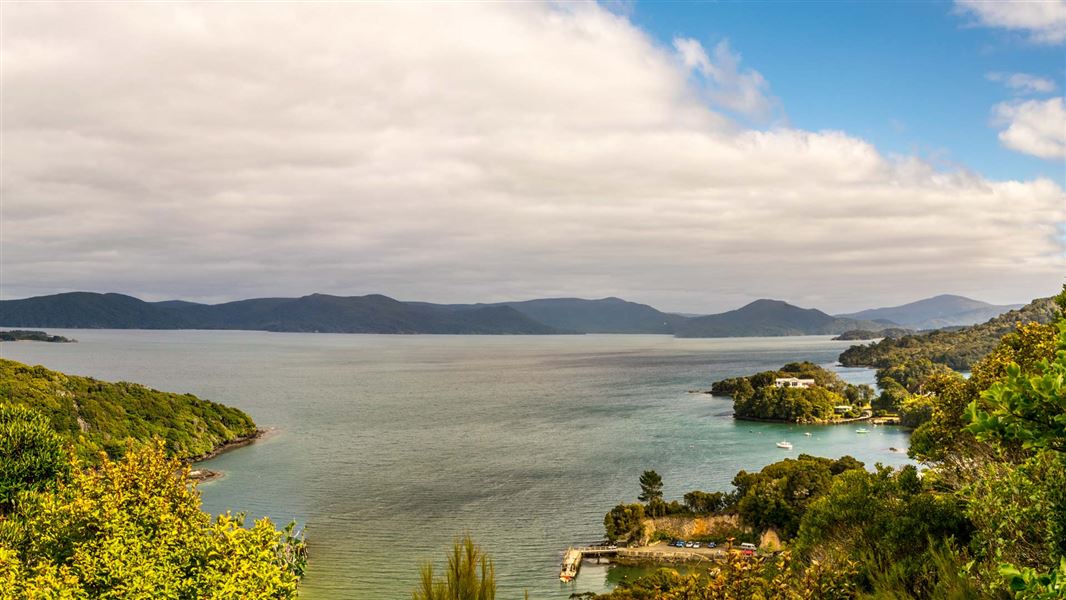Archived content: This media release was accurate on the date of publication.
Date: 30 April 2021 Source: The Office of the Acting Minister of Conservation
“The Government’s Jobs for Nature programme is investing in the future of the area’s stunning environment, with projects to protect Fiordland’s exceptional marine areas from an invasive and destructive kelp; expand existing predator and pest control on Rakiura; and restore the health of a braided riverbed habitat in Central Otago.”
These three projects alone will create job and training opportunities for 95 full time equivalent (FTE) positions.
Undaria control in Fiordland
Upskilling and training workers affected by the tourism industry downturn will be a major component of a project to protect Fiordland’s exceptional marine biodiversity from the invasive marine pest Undaria pinnatifida (Undaria), a species of kelp.
“A $2 million boost from Jobs for Nature funding will be used to re-deploy and recruit up to 36 staff from the wider Te Anau community over a two-year period,” Dr Ayesha Verrall said.
“Te Anau locals will have training opportunities to become certified occupational scientific divers and obtain boat qualifications with a focus on recruiting local iwi and hapu members.
“The rich and unique diversity of species living on the rock walls of the Fiordland (Te Moana o Atawhenua) Marine Area rivals the best in the world and includes protected black corals.
“If Undaria is left unmanaged, it will irreversibly change the native seaweed and marine habitats,” says Minister Verrall.
“With ten marine reserves and a host of businesses that rely on the pristine nature of the area, this is an important investment in the economic and ecological viability of the Fiordland Marine Area (928,000ha) and its underwater treasures.”
Restoring Rakiura project – Stewart Island
The Restoring Rakiura project will see intense pest and predator control work carried out around Oban/Halfmoon Bay and adjacent areas.
“The Oban area has been settled for some time and is the hotspot for many exotic weeds on the Island.
“The Stewart Island/Rakiura Community and Environment Trust (SIRCET) has been at the forefront of predator control in the area for more than 18 years, but because large parts of the control area are serviced by volunteers the intensity of control, particularly during surges in predator numbers, is limited.
“As project partner, SIRCET will receive $2 million in Jobs for Nature funding over a two-year period to scale up their existing work, creating around 45 roles.
“This paid predator control team can then ensure effective suppression is maintained year-round, before control areas are expanded.
“This project is hugely important for the island’s biodiversity and will reduce predation of vulnerable bird species, increase the abundance and diversity of flora and protect native forest habitats.
“Alongside that the skills gained on the job will provide an ideal springboard for workers to pursue future opportunities across the conservation and land management sectors.”
Tucker Beach Wildlife Management Reserve Restoration project – Queenstown
The environmental health of Tucker Beach Wildlife Management Reserve, an area of braided river upstream of the Shotover Bridge near Queenstown, will be enhanced by investment in a three-year-project, opening up 14 job opportunities.
“Friends of Tucker Beach Society will receive $1 million in Jobs for Nature funding to partner with Go with Tourism, a government-funded initiative established to build the tourism workforce, to provide work for underemployed tourism staff.
“The indigenous flora and fauna at Tucker Beach Reserve is being seriously displaced by infestations of weeds.
“Undertaking weed control and maintenance as well as re-establishing native plants will improve the nesting habitat for native black-billed gulls, black-fronted terns, banded dotterels and the South Island pied oystercatchers, all of which are under threat.
“Alongside that reinstating tussock grass, shrubland, kowhai woodland, and pockets of beech/ totara in the braided riverbed and nearby terraces will promote a conservation legacy that over time will support a more diverse native fauna in the reserve,” Dr Ayesha Verrall said.
Contact
For media enquiries contact:
Email: media@doc.govt.nz
